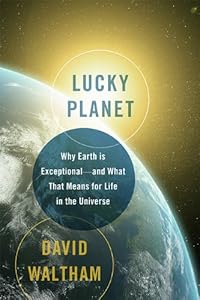 Because that wouldn’t be respectable, according to David Waltham at The Scientist.
Because that wouldn’t be respectable, according to David Waltham at The Scientist.
And even nature caters to Darwin’s followers:
There are three scientifically respectable explanations for our 4 billion years of life-friendly weather. Firstly, it could be a fundamental principle that biogeochemical processes on inhabited worlds tend to stabilize climates. Thus, we shouldn’t be surprised by Earth’s suitability for life because the physical, chemical, and biological laws of the Universe guarantee the existence of many such worlds. Alternatively, it may be that life is extraordinarily adaptable and will thrive under a wide range of conditions. Again, we shouldn’t be surprised that Earth fits life because, in fact, life has adapted to fit Earth. Finally, perhaps planets suitable for complex organisms occur only rarely and purely by chance. But even then we shouldn’t be surprised that we inhabit one of the few lucky worlds. Intelligent observers can only arise on planets where conditions allow complex life, even if such worlds are so unusual that we’d need to search a billion galaxies to find another. The tautology that we must inhabit a habitable world, even if such planets are extraordinarily peculiar, is an extreme example of the scientifically common problem of observational bias. This anthropic selection effect, as it is known, is a central theme in Lucky Planet.
Here’s an excerpt from his new book, Lucky Planet.
See also: University of London Astrobiologist: “Earth is Lucky” and “Almost the Perfect Place for Life”
and
![]() The Science Fictions series at your fingertips (cosmology).
The Science Fictions series at your fingertips (cosmology).
Follow UD News at Twitter!